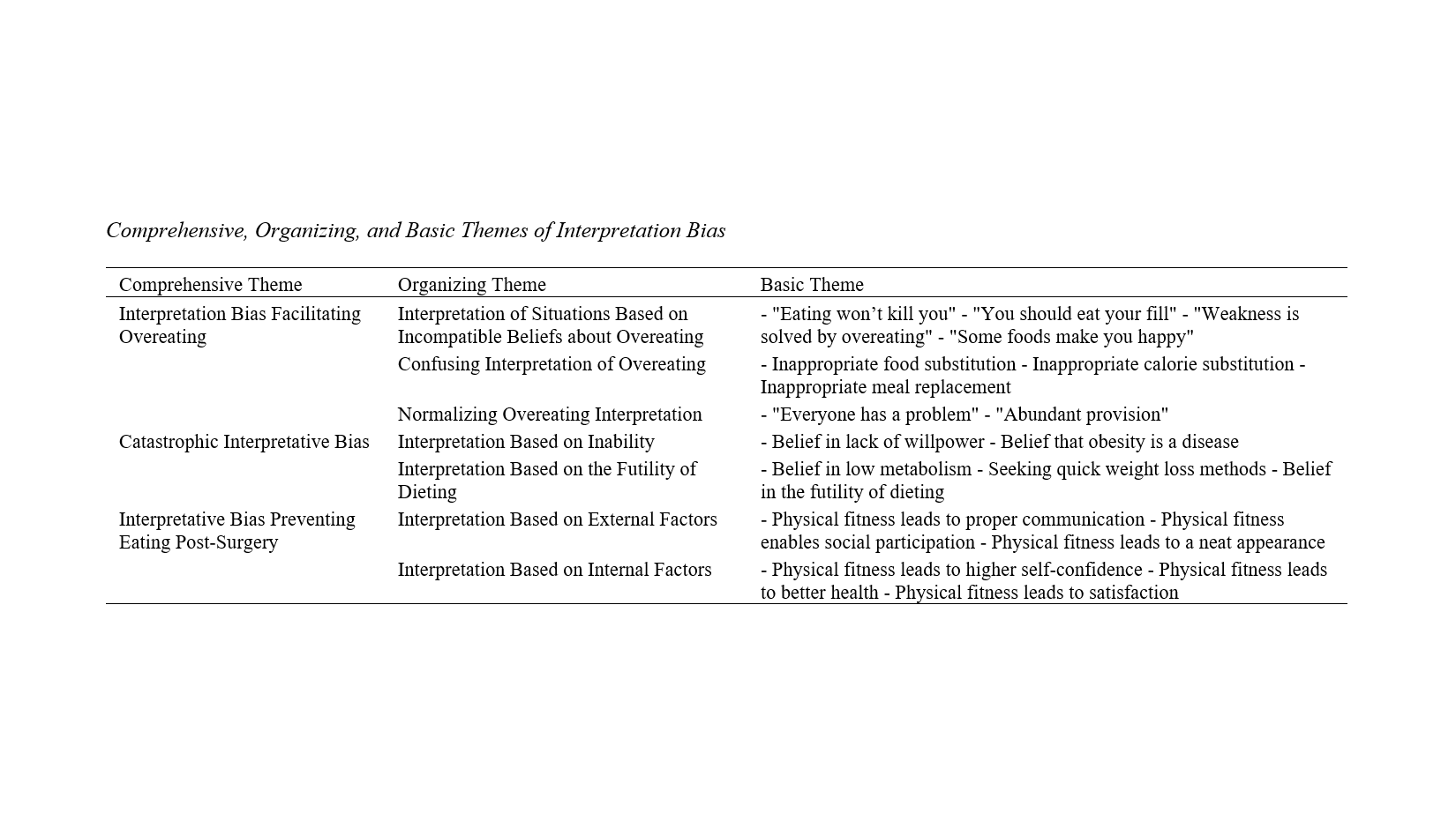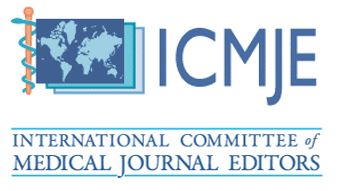Analysis of Interpretation Bias Related to Overeating in Obese Individuals with Weight Loss Surgery: A Qualitative Study
Keywords:
Interpretation Bias, Obesity, Weight LossAbstract
This study aimed to analyze interpretation bias related to overeating in obese individuals following weight loss surgery. The research type was qualitative and utilized the thematic analysis method of Clarke and Braun (2006). The research environment included all individuals with a history of obesity and weight loss surgery. Participants were ten individuals selected purposefully. The criterion for the number of participants was data saturation. The research tool was a semi-structured interview with questions related to interpretation bias in this group. Data were analyzed using Clarke and Braun’s (2006) six-step method. The results showed that interpretation bias among these individuals consisted of three overarching categories: 1) Interpretative bias facilitating overeating (with organizing codes of interpreting situations based on incompatible beliefs about overeating, normalizing overeating, and confusing interpretations of overeating), 2) Catastrophic interpretative bias (with organizing categories of interpretative bias based on inability and interpretative bias based on the futility of dieting), and 3) Interpretative bias inhibiting eating (with organizing categories of interpretative bias based on external issues and interpretative bias based on internal issues). Based on the results of this study, it can be said that to prevent overeating or maintain weight loss, individuals prone to or suffering from overeating need to manage their cognitive biases and receive training in this area.
Downloads

Downloads
Additional Files
Published
License
Copyright (c) 2024 Samira Tavakoli Kohpaei (Author); Hajar Torkan (Corresponding Author); Zahra Yousefi (Author)

This work is licensed under a Creative Commons Attribution-NonCommercial 4.0 International License.

























